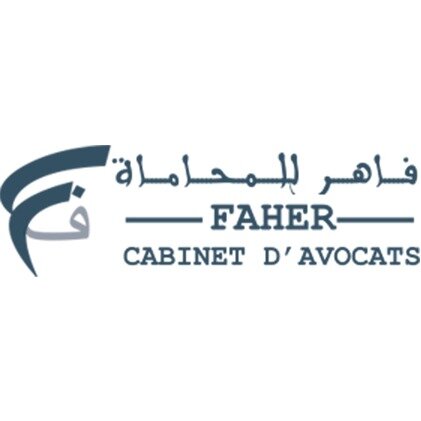Best Employment Rights Lawyers in Morocco
Share your needs with us, get contacted by law firms.
Free. Takes 2 min.
Or refine your search by selecting a city:
List of the best lawyers in Morocco
Morocco Employment Rights Legal Questions answered by Lawyers
Browse our 1 legal question about Employment Rights in Morocco and read the lawyer answers, or ask your own questions for free.
- Labour law
- Can an employer mention only the gross salary in a contract of his employee in Morocco without specifying the net salary
-
Lawyer answer by Nomos Legal Practice
Hello and thank you for contacting SK Solicitors, a full service law firm based in Lagos, Nigeria. Kindly let us know how we can help you to solve your legal needs and before we can render legal advice service, you...
Read full answer
About Employment Rights Law in Morocco
Employment rights in Morocco are governed by the Moroccan Labor Code, which provides a comprehensive framework for the protection of workers and the regulation of work conditions. The Labor Code covers a wide range of topics including worker rights, employer obligations, employment contracts, working conditions, wages, leave, occupational health and safety, and dispute resolution. It aims to balance the relationship between employers and employees, ensuring that the rights of both parties are respected.
Why You May Need a Lawyer
You may require legal assistance in various situations related to employment rights in Morocco. Common reasons include disputes over wrongful termination, discrimination, harassment at the workplace, issues with employment contracts, wage disputes, and violations of labor laws. A lawyer specializing in employment rights can help you understand your legal standing, negotiate settlements, or represent you in a court of law if necessary. Legal advice is crucial for protecting your rights and ensuring a favorable outcome in any employment-related disputes.
Local Laws Overview
The Moroccan Labor Code lays out several key aspects regarding employment rights:
- Employment Contracts: Contracts must be fair and comply with national labor laws. This includes specifications on fixed-term and permanent contracts.
- Working Hours: The standard working hours are typically set at 44 hours per week, with provisions for overtime compensation.
- Minimum Wage: The law stipulates minimum wage requirements that employers must adhere to, subject to periodic reviews and adjustments.
- Leave Entitlements: Employees are entitled to various types of leave, including annual leave, sick leave, and maternity leave.
- Dismissal Protections: There are strict regulations regarding the termination of employment to prevent unfair dismissals.
- Health and Safety: Employers are required to maintain certain standards in the workplace to ensure the safety and health of their employees.
- Dispute Resolution: The Labor Code outlines mechanisms for resolving disputes such as mediation and labor courts.
Frequently Asked Questions
What are my basic rights as an employee in Morocco?
As an employee, you have the right to fair wages, safe working conditions, paid leave, and protection from discrimination and harassment. You also have the right to be informed about the terms and conditions of your employment.
Can I be fired without reason?
No, generally employers must provide a valid reason for termination and may have to follow a disciplinary process. Wrongful termination can be challenged in the labor courts.
Is there a minimum wage in Morocco?
Yes, Morocco has a legally mandated minimum wage which varies by sector and is subject to periodic governmental reviews and adjustments.
How many days of annual leave am I entitled to?
Employees are typically entitled to 1.5 days of paid leave per month of service, which amounts to 18 days per year, although this may vary based on specific employment contracts or collective bargaining agreements.
What should be included in my employment contract?
Your employment contract should include job description, working hours, wage details, terms of employment, leave entitlements, and termination conditions.
How should I report workplace harassment?
Harassment should be reported to the employer or HR department first. If not addressed adequately, it can be reported to labor authorities or pursued legally with the help of a lawyer.
What rights do I have if I am injured at work?
Employers are obliged to ensure workplace safety and provide compensation for workplace injuries. You may be entitled to medical treatment and wage compensation during recovery.
Can I join a labor union?
Yes, Moroccan law allows employees to form or join labor unions and participate in activities aimed at protecting their interests.
Does maternity leave affect my employment status?
No, maternity leave is a protected right and cannot be a basis for job termination; it includes leave and benefits as specified under the Labor Code.
What should I do in case of a wage dispute?
Begin by discussing the issue with your employer or HR. If unresolved, you can file a complaint with labor authorities or seek legal advice for further action.
Additional Resources
For additional information and assistance, you can contact the following:
- Ministry of Labor and Professional Integration: Responsible for overseeing employment laws and labor policies.
- The Moroccan Labor Inspectorate: Provides information and assistance regarding labor rights and disputes.
- Trade Unions: Various unions offer support and advice to workers on employment rights issues.
- NGOs and Legal Aid Organizations: These can offer free or low-cost legal advice and representation.
Next Steps
If you need legal assistance in employment rights, consider the following steps:
- Identify your legal issue and gather any documentation or evidence related to your case.
- Research and contact lawyers who specialize in employment law to seek advice or representation.
- Consider alternative dispute resolution mechanisms as an initial step before going to court.
- Communicate clearly with your lawyer and understand the legal process, potential costs, and outcomes.
- Stay informed about your rights and obligations through available resources and updates in local laws.
Lawzana helps you find the best lawyers and law firms in Morocco through a curated and pre-screened list of qualified legal professionals. Our platform offers rankings and detailed profiles of attorneys and law firms, allowing you to compare based on practice areas, including Employment Rights, experience, and client feedback.
Each profile includes a description of the firm's areas of practice, client reviews, team members and partners, year of establishment, spoken languages, office locations, contact information, social media presence, and any published articles or resources. Most firms on our platform speak English and are experienced in both local and international legal matters.
Get a quote from top-rated law firms in Morocco — quickly, securely, and without unnecessary hassle.
Disclaimer:
The information provided on this page is for general informational purposes only and does not constitute legal advice. While we strive to ensure the accuracy and relevance of the content, legal information may change over time, and interpretations of the law can vary. You should always consult with a qualified legal professional for advice specific to your situation.
We disclaim all liability for actions taken or not taken based on the content of this page. If you believe any information is incorrect or outdated, please contact us, and we will review and update it where appropriate.
Browse employment rights law firms by city in Morocco
Refine your search by selecting a city.

















